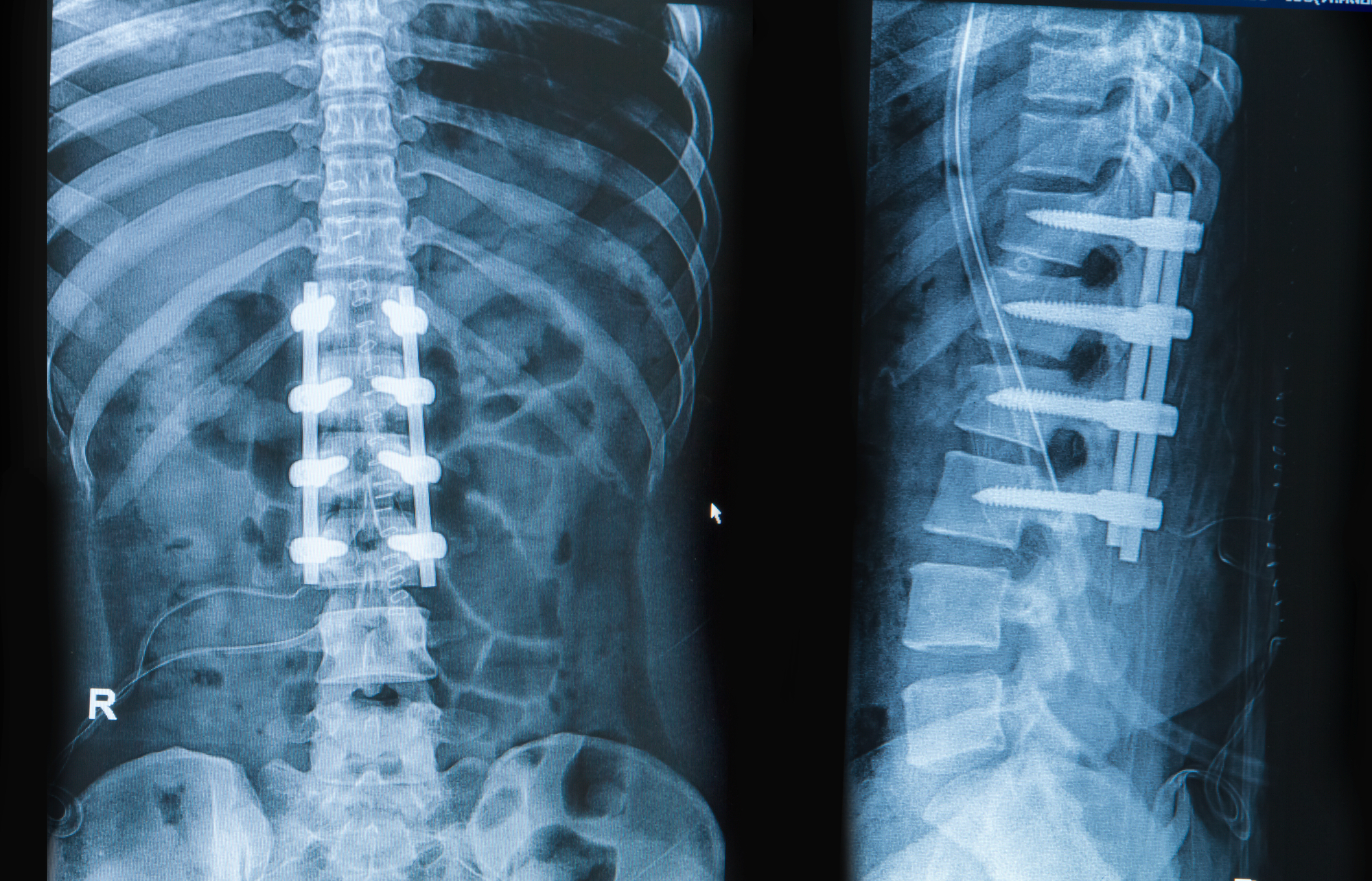What is a Spinal Fusion?
Spinal fusion refers to a surgical procedure that connects two or more vertebrae and eliminates motion between them in order to prevent movement from affecting the spine in ways that cause pain. In other words, it decreases mobility but stabilizes the spine. Decreasing mobility comes with its own complications and a lot of the time these mobility restrictions result in failures and leave patients in need of revision surgeries.
With a spinal fusion a surgeon uses screws, rods, and bone to fuse together the vertebrae and increase stability but limit movement. The belief is that if disc or vertebrae do not move they can’t cause any pain. This turns out to be inaccurate in many situations and you can investigate and find the reports on failed spinal fusion surgeries. There are many reports and studies because the surgery itself has low success rates.

When is a Spinal Fusion Necessary?
There are very few situations where a spinal fusion is necessary, but they do exist. Dr. Mork insists on seeking alternatives to spinal fusion before settling. First, we’ll go over the diseases that conventional medicine treats with a spinal fusion and then we’ll go over what should be treated with spinal fusion. Here are the conditions your physician may prescribe a fusion for.
- Herniated disc
- Spinal stenosis
- Fractured vertebrae
- Degenerative disc disease
- Scoliosis
- Spondylolisthesis
- Tumors/Cancer
- Infection
Much of the time many of the diseases above can be treated with an alternative treatment and a fusion isn't necessary.
The only time a fusion is recommended is when there’s:
- A deformity in the spine that requires it
- Trauma that leads to a dislocation or fracture
- Failed back surgery that leads to excessive motion or instability
- Tumor or other destructive disease that damages the spine severely
What to expect after a spinal fusion?
Post operative care for a spinal fusion is intense which is why many spinal fusions fail and a second surgery is needed. Think about this for one second. You can’t bend your spine at all after the back surgery or you're going to cause it to fail and be in need of another surgery to correct the issue and stabilize the spine.
Many people who get a fusion end up with a second surgery due to bending or twisting, especially in their sleep. If you’re single and don’t have a care taker this can make wound care extremely difficult and impossible to do on your own. Another down side to the post operative care is that you’re going to need to take opiates to relieve the pain until things start to heal. Many experience feeling more pain after the surgery than they did prior to ever getting a fusion.
What is the recovery time of a spinal fusion?
Whereas endoscopic spine surgery will have you on your feet the same day of surgery and back to normal in 1-6 weeks, a fusion will have you down for at least 4-6 weeks preventing you from doing the most minimal of tasks during that time. Some people report not being pain free for 6 months and some report never recovering at all. So you really have to look at the data.
A few facts about spinal fusions with data to back it:
- Pseudoarthrosis is basically a failed fusion, but more specifically a problem that happens with a fusion after an arthrodesis. This accounts for up to 56% of surgery revisions. View study here.
- Charles Edwards, MD found that 61% of fusions from the thoracic spine to L5 developed advanced disc degeneration.
- Fusions increase the risk of adjacent segment instability up to 3x
Needless to say, there is definitely risk associated with getting a spinal fusion, so you want to make sure that a spinal fusion is going to improve your quality of life before you make the decision.
Can a failed spinal fusion be fixed?
In some cases. When it comes to a failed fusion and the pain is caused by disc or nerves, a discectomy can be performed to eliminate the pain. Some doctors may recommend a laminectomy or laminotomy, but Dr. Mork recommends against this as there are studies that indicate removing the lamina is not very effective at treating the pain.
And endoscopic discectomy is the proper approach to treating a failed fusion. A fusion is permanent, there is no going back once a fusion is administered. But if that doesn’t address the pain or if other pain occurs, it can be eliminated with further surgical procedures. So when you hear failed back surgery can be corrected, this doesn’t meant that what’s been done get’s undone. Additional surgical procedures are performed to remove debris, herniated disc, disc fragments, nerves, or whatever happens to eliminate the pain.
In conclusion
When it comes to spinal fusion and comparing the pros vs cons, the cons seem to outweigh any benefit in most cases and therefore should require consideration if you've been prescribed one. Seek out a second opinion, use your mind and find the right solution. Doctors aren't perfect and sometimes standard of care influences the decision making process. So be diligent and do your own research because in the end it's your health and your life.